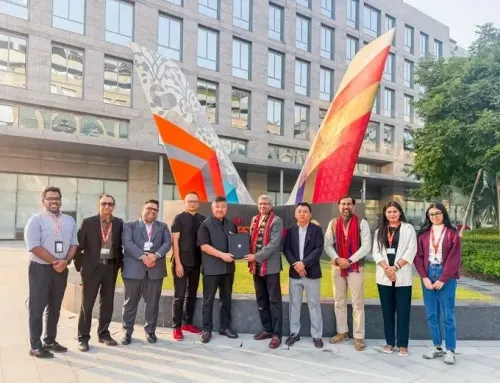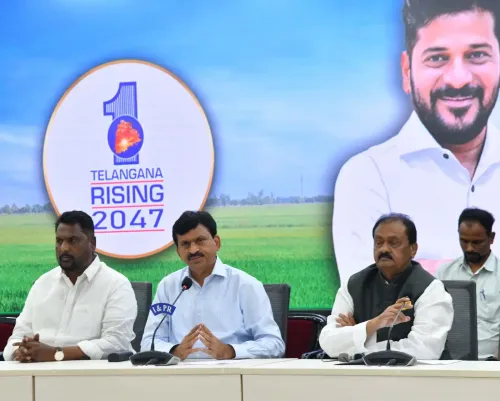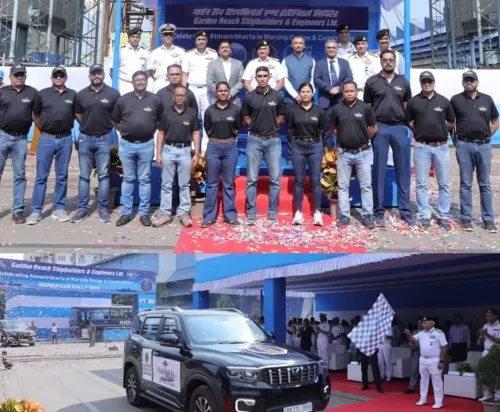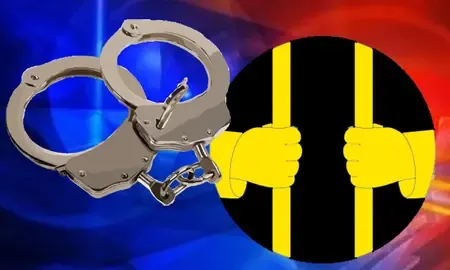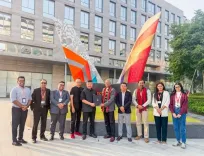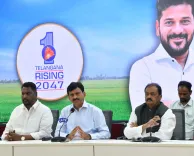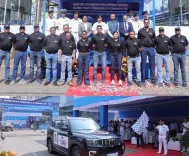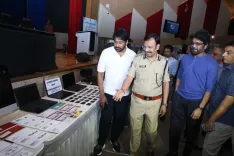What Steps is Rajasthan CM Taking for Digital Elevation Models of Sutlej and Beas?
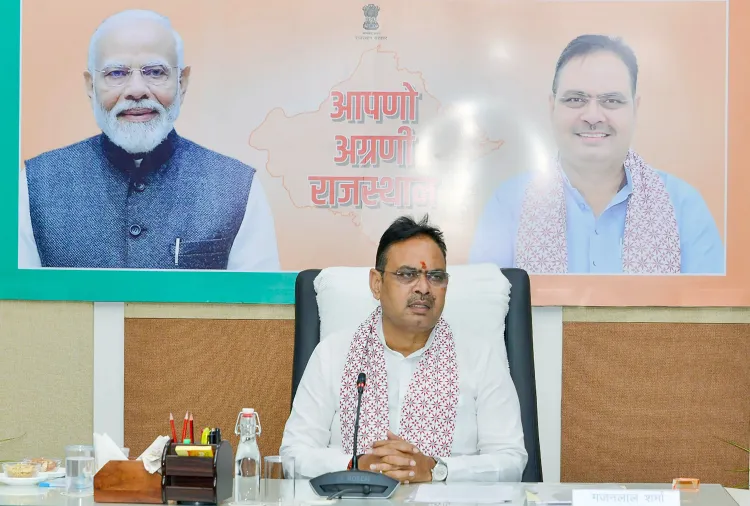
Synopsis
Key Takeaways
- Digital Elevation Model for effective water management.
- Enhanced law and order response times.
- First in solar power generation capacity in India.
- Significant health insurance coverage for the population.
- Current efforts to support women's development and health.
Jaipur, Nov 17 (NationPress) Rajasthan Chief Minister Bhajan Lal Sharma stated on Monday that under the leadership of Union Home and Cooperation Minister Amit Shah, significant advancements have been achieved in the state over the last two years, focusing on enhancing vital services such as law and order, health, education, electricity, drinking water, infrastructure, and cooperatives.
During the 32nd meeting of the Northern Zonal Council held in Faridabad on Monday, which was chaired by Amit Shah, the Rajasthan CM expressed his gratitude to the Central Government for increasing the membership of the Bhakra Beas Management Board from two to four full-time members—a pivotal move that has greatly benefited Rajasthan.
He urged the Centre to approve three essential initiatives: the creation of a digital elevation model for the downstream Sutlej and Beas rivers to ensure that the Pong Dam reaches its full capacity of 1,400 feet, the allocation of surplus water from the under-construction Makora Pattan barrage per the 1981 agreement, and the sharing of electricity generated by Punjab’s small hydro plants along the Bhakra Main Line.
Sharma highlighted that the government is committed to providing daytime electricity in 22 districts to support farmers. Rajasthan currently holds the top position in the nation for installed solar power generation capacity.
Under Components A and C of the PM-KUSUM Yojana, decentralized solar plants with a total capacity of 2,215 MW have been established. He also mentioned that 151 new 33 kV substations have been completed under the RDSS, and 1.1 million smart meters have been installed.
Through persistent efforts, the AT&C losses have decreased from 21.81% in 2023-24 to 15.27% in 2024-25.
Sharma mentioned that the state government is actively working on improving law and order; the average response time for police has dropped from 21 minutes to nearly 13 minutes due to increased mobile units.
The average resolution time for cases under the POCSO Act has fallen to 58 days, while rape cases are being resolved in 48 days.
He called upon the Central Government to sanction 15 new fast-track special courts for the swift handling of POCSO cases.
Under the AMRUT scheme, GIS-based master plans for 28 cities with populations exceeding 100,000 have been developed, with plans for 62 additional cities with populations ranging from 50,000 to 100,000 also in progress.
Sharma further noted that 88% of Rajasthan’s population is covered under health insurance—the highest coverage in the country.
Through the Chief Minister’s AMRUT Aahar Yojana, children aged 3-6 years receive milk five days a week at Anganwadi centres.
Enhanced support under the PM Matru Vandana Yojana, complimentary monthly sonography for pregnant women through the Maa Voucher Scheme, and assistance to 550,000 girls under the Lado Incentive Scheme are all contributing to the overall development of women.
He underscored that under Amit Shah’s leadership, Rajasthan has secured the top rank in India for membership in the Indian Seed Cooperative Society.
The state has also achieved a national record by constructing 70 warehouses (each with a capacity of 500 MT) in the first phase of the world’s largest food storage scheme.
Further accomplishments include making 5,732 PACS fully functional, establishing 2,657 new multipurpose PACS, setting up 1,958 multipurpose dairy cooperative societies, converting 4,141 PACS into PM Kisan Samriddhi Kendras, and implementing a new cooperative code.
Under the Give Up Campaign, approximately 4.5 million eligible individuals voluntarily relinquished their NFSA benefits.
Additionally, the names of 2.7 million individuals were removed for failing to complete e-KYC, ensuring that 7 million genuine beneficiaries are now receiving the benefits.
For environmental conservation, the state granted 122 Stage-1 clearances via the Parivesh 2.0 portal in the last two years, with 137 clearances occurring in 2025 alone.
Rajasthan’s cement plants have utilized 41,000 MT of RDF transported from Delhi over the past 18 months as an alternative fuel.

